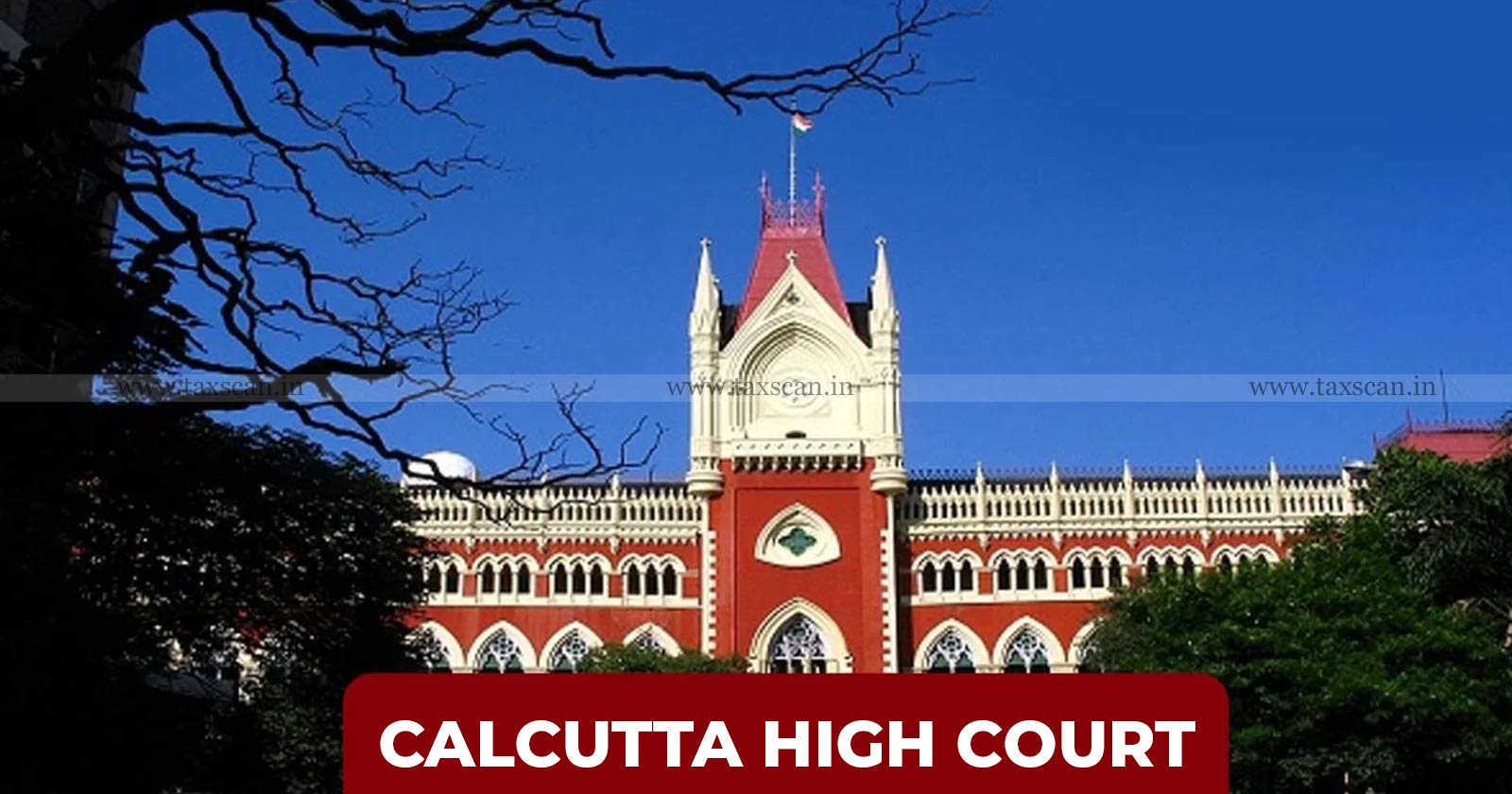Petition u/s 9 of Arbitration Conciliation Act, City Civil Court and Commercial Division Court has Concurrent Jurisdiction: Calcutta HC [Read Order]
The Court viewed that the petitioner has not been able to establish any facts which would attract the jurisdiction of the Calcutta High Court.

Petition – Arbitration Conciliation Act – City Civil Court – Commercial Division Court – Jurisdiction – Calcutta HC – taxscan
Petition – Arbitration Conciliation Act – City Civil Court – Commercial Division Court – Jurisdiction – Calcutta HC – taxscan
The Calcutta High Court has held that the City Civil Court and Commercial Division Court have Concurrent Jurisdiction on petition filed under section 9 of the Arbitration Conciliation Act, 1996.
The petitioner, Cholamandalam Investment and Finance Company Limited has filed the present application under section 9 of The Arbitration and Conciliation Act, 1996 praying, inter alia, for the appointment of a Receiver in respect of the asset which was financed by way of a loan given by the petitioner to the respondents. The petitioner also seeks a restraint on the respondents from transferring or disposing of the said asset.
The respondents have taken a point of maintainability of the application on 3 grounds. The first of the grounds is that the application is barred under section 42 of The Arbitration and Conciliation Act, 1996. The second objection is that the application is barred under Order XXIII Rule 1 of The Code of Civil Procedure, 1908, which relates to the withdrawal of suits. The third objection is that the application has not been filed before the jurisdictional Court in terms of the arbitration agreement between the parties.
Counsel for the respondents argues that the City Civil Court at Calcutta has the jurisdiction to entertain this application since the first application was made by the petitioner before the learned City Civil Court under section 9 of the 1996 Act. Counsel relies on the fact that the petitioner’s claim is of Rs. 67.53 lakhs hence ousting the jurisdiction of this Court. Counsel relies on section 2(1)(b) of The Commercial Courts Act, 2015 for the definition of “Commercial Court” and also submitted that Order XXIII Rule 1 of the CPC would apply to the present proceeding whereupon the petitioner cannot be permitted to institute a fresh proceeding in respect of the same subject matter after abandoning the earlier proceeding without the permission of the Court to file the fresh proceeding. Counsel relies on Clause 29 of the Loan Agreement to urge that the Courts at Chennai would have exclusive jurisdiction to entertain any dispute arising from the loan agreement.
Counsel appearing for the petitioner opposes the preliminary objections on the ground that the 1996 Act is a complete Code and that section 2(1)(e) of the said Act makes it clear that proceedings are to be received, tried and adjudicated only by the Court which fulfils the criteria of section 2(1)(e) of the Act. According to counsel, where there are two principal Civil Courts of Ordinary Original Civil Jurisdiction, only the Superior Court will have the jurisdiction to receive and entertain all the proceedings under the 1996 Act. Counsel also argued that there is no financial platform under the 1996 Act and that the City Civil Court cannot be the superior principal Court of ordinary original jurisdiction in the district of Kolkata under section 2(1)(e) even if it is conferred with pecuniary jurisdiction to entertain applications under The Commercial Courts Act, 2015.
Section 12(2) of The Commercial Courts Act, which deals with the determination of specified value, further takes into account the aggregate value of the claim and counter-claim as set out in the Statement of Claim and Counter-Claim in an arbitration of a commercial dispute as the basis for determining whether the arbitration is subject to the jurisdiction of a Commercial Division, Commercial Appellate Division or Commercial Court, as the case may be.
Further, section 2(1)(e)(i) of The Arbitration and Conciliation Act, 1996, does not envisage any form of conflict between the Principal Civil Court of Original Jurisdiction in a District and the High Court exercising its Ordinary Original Civil Jurisdiction in the same District. Section 2(1)(e)(i) is inclusive and treats the High Court also to be a principal Civil Court in a District which is empowered to decide the questions forming the subject matter of the arbitration in exercise of its Ordinary Original Civil Jurisdiction, in the same manner as in a suit. Section 2(1)(e)(i) of the 1996 Act may be contrasted with section 10(3) of The Commercial Courts Act, 2015 which expressly excludes a High Court where an application under the 1996 Act has been filed before any principal Civil Court of Original Jurisdiction in a District where the Commercial Court having territorial jurisdiction over the arbitration would be the proper Court.
Thus, the choice of a litigant to approach a Court that has been conferred pecuniary jurisdiction to hear an application filed under The Arbitration and Conciliation Act, 1996 cannot be limited or extinguished by reading Calcutta High Court as the only Court under section 2(1)(e)(i) of the 1996 Act. The litigant must be free to approach any Court provided the Court has been designated as the proper Court in terms of pecuniary limits under the Notification of 20.3.2020.
Justice Moushumi Bhattacharya observed that the petitioner has not been able to establish any facts which would attract the jurisdiction of the Calcutta High Court.
The Court accepted the preliminary objections raised by the respondents and dismissed the application as not being maintainable. Mr. Swatarup Banerjee, Adv., Ms. Shrayashee Das, Adv., Mr. Himanshu Bhawsingka, Adv. Mr. Rohan Kr. Thakur appeared for the petitioner. Mr Suddhasatva Banerjee, Adv., and Mr. Dyutimoy Paul appeared for the respondent.
To Read the full text of the Order CLICK HERE
Support our journalism by subscribing to Taxscan premium. Follow us on Telegram for quick updates


